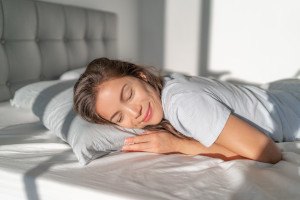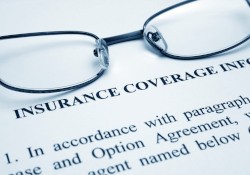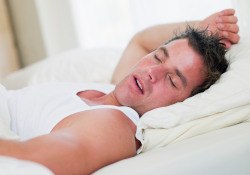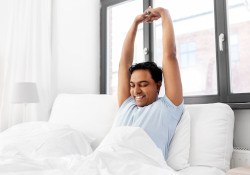Snoring & Sleep Apnea Treatment in Fort Worth
Sleep Apnea Therapy for Ft. Worth, Benbrook and surrounding communities.
Dr. Corbitt has completed UCLA's Sleep Medicine mini residency. This has given her the ability to screen patients for sleep apnea and refer them to a sleep clinic for a sleep study, if necessary. Untreated sleep apnea can lead to so many health issues; that’s why early diagnosis and treatment are very important.
Are you drowsy during the day with no explanation? Do you snore loudly or wake up breathless in the middle of the night? Does your partner complain that your snoring is affecting their sleep? If you're experiencing any of these symptoms, you may be one of more than twelve million Americans who are affected by sleep apnea.
What is sleep apnea?
Sleep apnea is a condition in which your breathing stops periodically during sleep – as many as 20-50 times per hour, in some cases. Each time you stop breathing in your sleep, the resulting lack of oxygen alerts your brain, which temporarily wakes you up to restart proper breathing. Since the time spent awake is so brief, most people with sleep apnea don't remember it, and many feel like they are getting a good night's sleep, when in fact, they are not. The constant wake-sleep, wake-sleep cycle prevents those with sleep apnea from achieving sufficient deep sleep, resulting in a constant drowsy feeling during the day. The small time spent in the restorative phase of sleep affects your health in so many ways.
What are the signs of sleep apnea?
The following symptoms can indicate the presence of sleep apnea. If you notice one or more of these, contact our practice:
• Insomnia or difficulty sleeping • Loud snoring at night • Waking up at night short of breath • Snorting or choking sounds during the night (indicating a restart of breathing) • Headaches (especially in the morning) • Falling asleep unintentionally during the day • Extreme drowsiness throughout the day • Falling asleep when driving or operating machinery
Do you suffer from any of the following? These can be "red flags" for sleep apnea.
• High blood pressure • Heart disease • History of stroke • Diabetes type 1 or 2 • Hypothyroidism • GERD (acid reflux) • Asthma • COPD • Morning headaches • Grinding or clenching your teeth
Are there different types of sleep apnea?
There are three categories of sleep apnea. The most common is called obstructive sleep apnea (OSA), and occurs due to a physical blockage – usually the collapsing of the soft tissue in the back of the throat. Less common is central sleep apnea (CSA), in which breathing stops because the muscles involved don't receive the proper signal from the brain. Plus, some people suffer from "mixed" or "complex" sleep apnea, which is a combination of obstructive and central.
What are risk factors for sleep apnea?
Obstructive sleep apnea is more common in males than females, and it’s also more common in older adults (40+) than younger adults and children. However, anyone — regardless of gender or age — can suffer from sleep apnea. Other risk factors include obesity, smoking, drinking, use of sedatives or tranquilizers, and family history. Central sleep apnea strikes most often in people with heart disorders, neuromuscular disorders, strokes, or brain tumors. It is also more common in males.
Is sleep apnea dangerous?
Sleep apnea is considered a serious medical problem and if left untreated, it can lead to high blood pressure, increasing the risk of heart failure and stroke. The ongoing state of fatigue caused by sleep apnea can also lead to problems at work or school, as well as dangerous situations when driving or operating heavy machinery. Sleep apnea can also cause complications with medication or surgery, too; sedation by anesthesia can be risky, as well as lying flat in bed after an operation. If you know or suspect you suffer from sleep apnea, let your family doctor know before taking prescribed medication or having surgery.
How is sleep apnea treated?
Treatments for sleep apnea depend on the severity of each individual case and the type of apnea. Basic treatment can be behavioral - for instance, patients are instructed to lose weight, stop smoking, watch their alcohol consumption, or sleep on their sides instead of on their backs. For mild or moderate sleep apnea, a custom oral device can be used to position the mouth in such a way that prevents the airway from collapsing. In more severe cases, a CPAP may be the best option. Treatment of sleep apnea is a team approach. The team consists of our office, your primary care doctor, and your sleep doctor. Treatment for sleep apnea is covered by most medical insurances.
What should I do if I suspect that someone in my family suffers from sleep apnea?
Contact our practice, and we can schedule a sleep apnea screening appointment. We may recommend an overnight sleep study in order to diagnose the precise extent of the problem, which is needed to prescribe the appropriate treatment. Depending on your medical insurance, we may refer you directly to the sleep clinic or contact your primary care for the referral.
Understanding the Cost of Sleep Apnea Treatment

As eager as you likely are to find a solution for your sleep apnea, you probably also want to make sure that the treatment will fit into your budget. Since every patient is different, the cost isn’t set in stone. We can get into the specifics of how much you can expect to pay for your sleep apnea treatment after learning more about your situation. Below, you will find a guide that can help you better understand the financial side of the treatment process.
Does Dental Insurance Cover the Cost of Sleep Apnea Treatment?

When you go to the dentist, you typically expect your dental insurance to help pay for your treatment. However, this is not necessarily the case when it comes to sleep apnea. The disorder is a medical issue, so any treatments will likely fall under medical insurance regardless of whether they’re provided by a dentist or not. If you’re not sure how your dental insurance plan will handle sleep apnea treatment, give your provider a call. You can also ask our team any insurance-related questions that you might have.
Factors That Affect the Cost of Sleep Apnea Treatment

First of all, there’s the cost of a sleep study to consider. Sleep apnea can only be treated once it has been diagnosed, making a sleep study a vital step of the process. Said sleep study will come with its own price tag.
Another factor is the specific kind of treatment that you receive. A custom oral device will have a different cost compared to a CPAP machine. As such, before a reliable estimate can be given, it will be necessary to determine which type of treatment would work best in your case.
Finally, there’s the matter of your specific insurance plan. Not all insurance companies will offer the same level of coverage when it comes to sleep apnea treatment. The details of your plan will determine how much you’ll need to pay yourself.
Treat Your Sleep Apnea Now to Improve Your Health

The costs of sleep apnea treatment are often balanced out by the money you can potentially save in healthcare costs by having your sleep disorder dealt with. Ignoring sleep apnea can increase your risk for cardiovascular problems. Furthermore, a lack of quality sleep can lead to car accidents, resulting in potentially costly injuries. By going to a professional to have your sleep apnea treated, you can avoid all of these problems, which is good news for your health and your bank account.
Making Sleep Apnea Treatment More Affordable

One way to manage the costs of sleep apnea treatment is to apply for CareCredit financing. Instead of having to deal with a single lump sum, you can instead pay over time in installments that are just right for your budget. Reach out to us if you’re interested in learning more about CareCredit.
Sleep Apnea FAQs
Why Should I See a Dentist for Sleep Apnea Treatment?
The connection between dentistry and sleep apnea may not be the clearest connection at first. However, if you think about it, dentists are experts in the upper respiratory area. With obstructive sleep apnea, tissues from the mouth and neck can obstruct the airway, preventing healthy breathing. Dentists are able to reposition the lower jaw to keep these tissues out of the airway. You also meet with your dentist every six months, so you already have an appointment set up where you can discuss your symptoms and concerns.
Does Everyone Who Snores Have Sleep Apnea?
Not everyone who snores does so because of sleep apnea, and not everyone with sleep apnea experiences snoring as one of their symptoms. However, loud snoring is one of the most common and noticeable signs of sleep apnea, which affects approximately 20 million people throughout the United States. A sleep study/test is required to diagnose this condition. After receiving a diagnosis, you can pursue treatment options to improve your quality of sleep.
Will My Sleep Apnea Go Away If I Lose Weight?
This is possible. Being overweight is a major risk factor for obstructive sleep apnea. By losing excess weight, you could reduce the amount of tissue in your airway, lowering your risk of obstruction. However, there is a chance that you could still have sleep apnea after reaching a healthy weight. You would need to complete another sleep test to confirm if you still have the condition.
Are There At-Home Remedies for Sleep Apnea?
Some products, like essential oils and weighted blankets, could help you relax more at night, and staying active throughout the day and not looking at your phone in the evening can help you to fall asleep faster. However, your sleep apnea treatment, whether that be an oral appliance or CPAP therapy, will have the greatest impact on your quality of sleep. If you have sleep apnea, you need to address the actual issue by opening up the airway.
What Does Sleep Apnea Look Like for Women?
Men tend to struggle more with snoring and daytime fatigue. On the other hand, women are more likely to develop insomnia, depression, anxiety, and other symptoms as a result of sleep apnea. Women who are pregnant, post-menopausal, and overweight are at a higher risk of developing obstructive sleep apnea.





